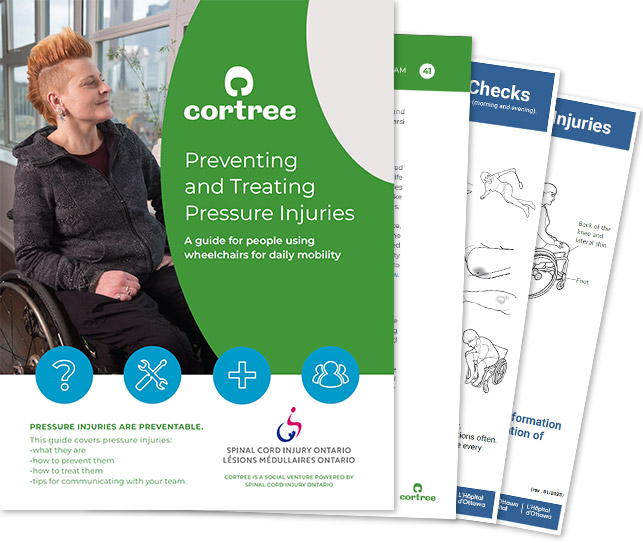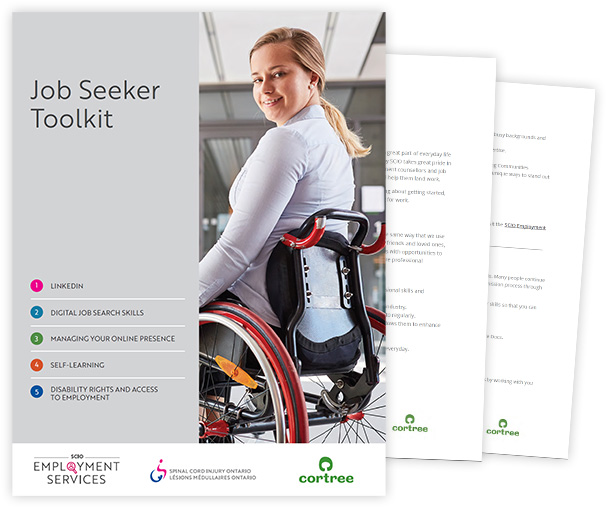Disability Programs in Canada
How to Apply for Disability Programs in Canada
Looking for Something Specific?
There are a number of helpful disability programs in Canada, which are designed to assist you and your loved ones manage the financial strains resulting from being unable to regularly work. However, before you can access these services, you need to know how to apply for disability programs in Canada.
Each program is a little different. Understanding their eligibility requirements and how to apply can save you time searching for answers, or dealing with application delays or denials. This page focuses on some of the most beneficial disability programs in Canada, disability eligibility requirements for each of these programs and where you can apply. Before we discuss the individual programs, let’s talk about what is considered a disability in Canada.
What is Considered a Disability in Canada?
There are a lot of different things that can be considered a disability, and we continue to see new categorizations or distinctions being made. Some disabilities are congenital, some are acquired. Some are physical, some are cognitive, some are both. Some are temporary, some are permanent and some are progressive. Some are noticeable and others are invisible. Disabilities come in many shapes and sizes and impact all types of people. Disability doesn’t discriminate.
So, when we discuss what is considered a disability in Canada, all of these different forms of disabilities need to be taken into account.
There are two common ways of thinking about disability. The medical model focuses on the body of the person with the disability, and physical limitations that may prevent them from participating in their community.
On the other hand, the social model focuses on the interaction between the person’s body and society. It implies that people with disabilities are unique, rather than limited. Their exclusion from being able to participate in certain parts of society is related to problems with their environment and lack of accommodations, rather than because of their disability.
In most cases, disability programs in Canada take a combined approach to classifying disability, using elements from both the medical and social models for determining eligibility. Each program has slightly different eligibility requirements.
Now let’s talk about how to apply for disability in Canada for each of these programs.

Canada Pension Plan (CPP) Disability Benefits
What is It?
The Canada Pension Plan (CPP) Disability Benefits is a monthly payment that can be given to eligible people with disabilities. The goal of this program is to help manage the costs of everyday life, on a monthly basis.
Am I Eligible?
In Canada, disability eligibility requirements for CPP include:
- You’re under the age of 65
- You must have made enough contributions to the Canada Pension Plan throughout your work history (and only applied to the CPP)
- Your disability must prevent you from being able to work any type of job on a regular basis.
- Your disability must be considered long-term, have an indefinite duration or be considered potentially life-threatening.
Ontario Disability Support Program (ODSP)
The Ontario Disability Support Program is similar to the CPP Disability Benefits, in that it provides monthly support for people with disabilities that are in financial need.
This program is specifically designed to provide additional assistance for people with disabilities and their loved ones, who are already using other disability support programs in Canada.
The Ontario Disability Support Program (ODSP) is considered a ‘program of last resort’; meaning that in order to be eligible to apply you must have already requested assistance from all other avenues, including:
- CPP Disability Benefits
- Having a job (if you’re able to work)
- The Workplace Safety and Insurance Board (WSIB)
If you’ve met those requirements, you must also be:
- Living in Ontario
- In financial need
- 18 or older
- A person with a disability, as defined under the ODSP Act (meaning your disability has a serious impact on your ability to work, take care of yourself or take part in the community)

Disability Tax Credit (DTC)

Child Disability Benefit (CDB)
What is It?
The Child Disability Benefit (CDB) is a monthly benefit for parents that have a child under the age of 18 with a severe or long-term disability.
Am I Eligible?
In Canada, disability eligibility for CDB requires children to be eligible for the DTC, which means they need a Disability Tax Credit Certificate signed by a medical practitioner.
The forms required for this must be approved by the Canada Revenue Agency (CRA).
Also, the child must be eligible to receive the Canada Child Benefit (CCB).
How Can I Apply?
Training & Education Through Cortree
We Provide Resources to Further Your Disability Education
Cortree offers an amazing variety of elearning courses. Some are designed to teach strategies you can use to improve accessibility in your life, while others are designed to facilitate a more compassionate understanding of the barriers people with disabilities face each day.
Visit our Disability Training in Ontario page to check out our wide range of courses.

